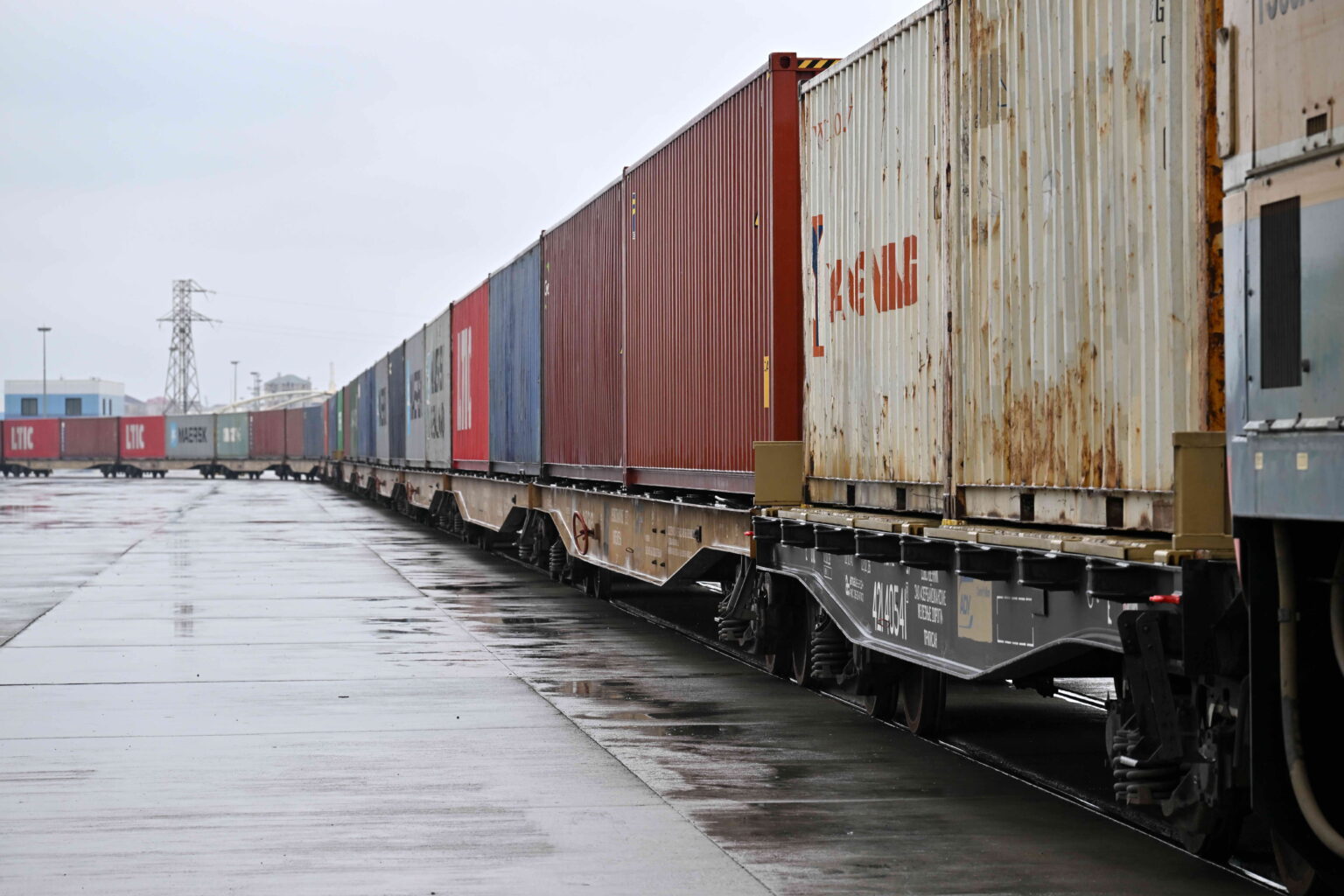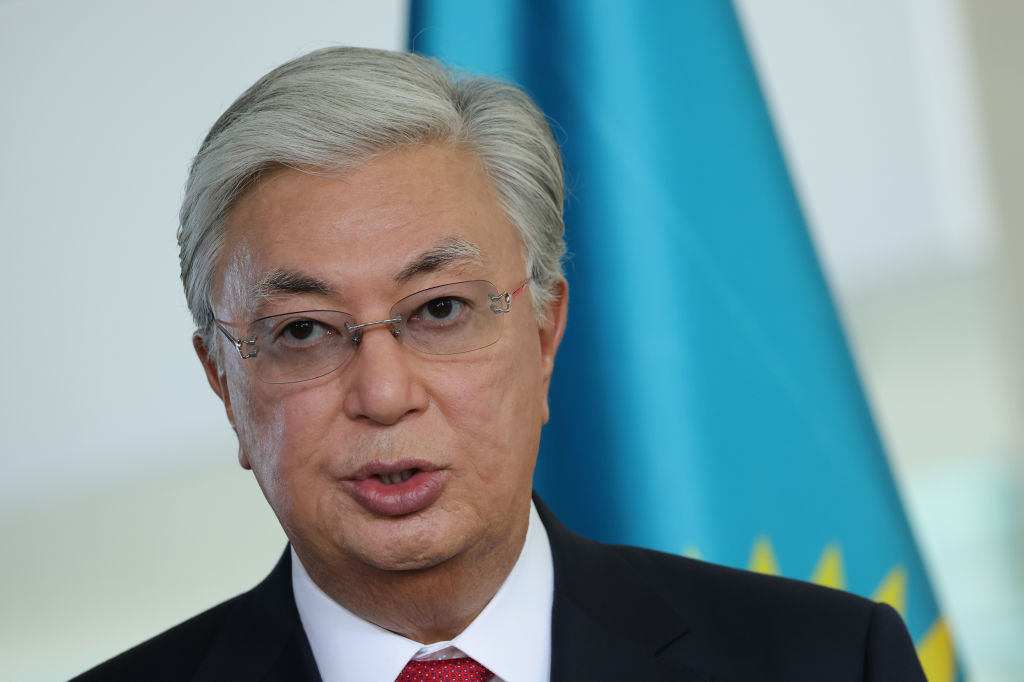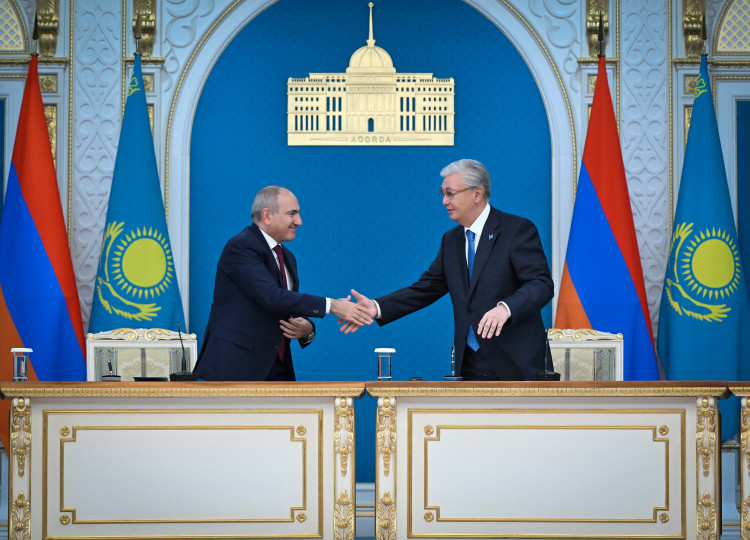
Geopolitical Tensions Complicate Proposed Kazakhstan–Turkmenistan–Afghanistan Transit Corridor
Geopolitical Tensions Complicate Proposed Kazakhstan–Turkmenistan–Afghanistan Transit Corridor
Executive Summary:
- Kazakhstan, Turkmenistan, and Afghanistan have agreed to develop a trilateral transit corridor that would connect India to Russia via the eastern branch of the International North-South Transport Corridor.
- Moscow and New Delhi have enjoyed stronger ties lately, and both governments would support such a project in emphasizing north-south trade over east-west routes.
- Geopolitical rivalries, especially between India and Pakistan, look to complicate the realization of this endeavor, as China would likely hamper any initiatives that divert traffic away from the Belt and Road Initiative.
Astana has expedited efforts to establish a transport corridor through Afghanistan involving Turkmenistan. In May, Kazakhstan’s Trade Ministry announced plans to establish road and rail networks through Afghanistan to facilitate trade with South Asia and the Persian Gulf (Daryo, May 5, 6). Earlier, on April 27, Kazakhstan, Turkmenistan, and Afghanistan had agreed at a high-level meeting in Kabul on the construction of transit infrastructure in Afghanistan to open a new corridor connecting Central Asia with South and West Asia. The participants in the trilateral meeting included Kazakhstan’s Deputy Prime Minister Serik Zhumangarin, Turkmenistan’s Transport and Communications Agency Director General Mammetkhan Chakyev, and Afghan Minister of Commerce and Industry Nooruddin Azizi (Afghanistan Times, April 29). Azizi expressed hope that the new corridor will transform war-torn Afghanistan into a logistics hub for regional exports. While the project aims to capitalize on regional transit upheavals largely brought on by Russia’s war against Ukraine, geopolitical rivalries and security concerns, especially in Afghanistan, may complicate these goals’ realization.
Under the plan, a logistics center would be built at Herat in western Afghanistan to facilitate regional exports. Russian oil sent to South Asian countries, including Pakistan and India, will presumably flow through the transport corridor, which will provide better links with existing infrastructure, as no new pipelines were mentioned during the trilateral meeting. During the meeting, Zhumangarin emphasized the importance of “recalculating and reorienting traffic flows” to support infrastructure development. The corridor would allow for the passage of millions of tons of Russian oil, which is expected to be purchased in the coming years by South Asian countries (Kursiv Media, May 3). Astana, Ashgabat, and Kabul also agreed to form a working group to move forward and implement the agreed-upon plans (News on Projects, May 2).
The proposed corridor may provide an alternative means for the smooth transit of Russian oil to Asian markets, as Western sanctions have compromised traditional routes. Russia is already making inroads in South Asia, strengthening its relationship with Afghanistan, as well as Pakistan and India, though with a balanced approach between the two regional rivals (Al Jazeera, June 12, 2023; Eurasia Review, May 4). Moscow hopes to find more buyers for its crude oil through this strategy. The corridor could also improve Russia’s access to West Asia.
The new transit infrastructure aligns with the Kremlin’s prioritization of north-south transit over east-west routes, with a particular focus on gaining access to the Indian Ocean. India is the world’s third-biggest oil consumer and importer. New Delhi fully exploited the rapidly changing situation in the global oil market after Russia’s full-scale invasion of Ukraine in February 2022. Just two months after the invasion, Russia became India’s fourth-largest oil provider (see EDM, April 27, 2023). Before the war, Russian oil only accounted for 2 percent of India’s total imports (Mint, February 20).
Similarly, Pakistan became a new outlet in South Asia for Moscow to sell its crude oil after India. In January 2023, Moscow and Islamabad reached a consensus on supplying Russian oil to Pakistan at discounted rates. In March, the two sides signed a formal agreement, and by June, the first cargo of 100,000 tons of discounted Russian crude oil arrived in Pakistan (Dawn, June 11, 2023).
The development of a Kazakhstan–Turkmenistan–Afghanistan transit corridor would strengthen the eastern branch of the International North-South Transport Corridor (INSTC). For Astana, Ashgabat, and Kabul, the eastern branch would serve as the key route for transporting goods from Russia and Belarus through Kazakhstan and Turkmenistan to Afghanistan, India, and the Middle East (Astana Times, April 29). The INSTC envisions a connectivity network to connect ports on the Indian Ocean and Persian Gulf to the Caspian Sea and then onwards through Russia to St. Petersburg and northern Europe. (China Brief, December 10, 2019). Moscow and Tehran have championed this route as they would play central roles in its development and usage.
On May 13, New Delhi and Tehran signed a 10-year deal for the operation of Chabahar Port, located on Iran’s southwestern coast in Sistan-Baluchistan province. Having easy access to India’s west coast, the port forms a crucial link in the INSTC (Business Standard, May 13). Access to Chabahar Port helps India circumvent Pakistan for transit to Central Asia, Russia, and beyond. Additionally, the construction of the Chabahar-Zahedan railway line will give India better access to Central Asia. The 628-kilometer project envisages connecting Chabahar with Zahedan, the capital of Sistan-Baluchistan province (Tehran Times, March 4, 2022). New Delhi’s investments in Chabahar Port and the INSTC are viewed as a strategic counter to China’s growing regional influence (Observer Research Foundation, May 15).
The new transport corridor could become a victim of geopolitical rivalries and security concerns arising from terrorism in South Asia. At present, China and India are seemingly locked in a geopolitical race for influence throughout Central, South, and West Asia. Beijing may choose to impede any transit projects that might divert traffic away from routes along the Belt and Road Initiative. India’s operational control of Chabahar Port, a competitor to the Chinese-run Gwadar Port in Pakistan, represents a possible point of contention. The broader geopolitical competition in South Asia between India and China is likely to expand to Central Asia, potentially further compromising the development of the Kazakhstan–Turkmenistan–Afghanistan corridor (China Brief, December 10, 2019). The resurgence of terrorism in South Asia, coupled with the rise of Islamist factions in Central Asia, may derail the corridor, as the security of critical infrastructure remains a point up for discussion.
Moreover, Pakistan, a vital trading partner for Afghanistan and a historical rival of India, may serve to disrupt the development of the proposed corridor (Daryo, May 5). Afghan-Pakistani relations have deteriorated in recent years, with Islamabad accusing the Taliban government of providing safe-haven for anti-Pakistani militant groups. Amid rising tensions, the Taliban government is looking to Iran’s Chabahar Port to secure an alternative route for regional trade. Kabul has committed to investing $35 million in the port, which would provide a gateway to international markets and reduce reliance on Pakistan (Times of Oman, March 4).
India and Pakistan’s geopolitical rivalry is playing out once again in the competition between New Delhi and Islamabad for increased influence in regional trade and transit. Seen by some in the West as a counterweight to China, India has been engaged over the past two decades in implementing regional plans for improved connectivity with Afghanistan and Central Asia via the INSTC. Beijing and Islamabad, however, will likely leave no stone unturned in hoping to sideline India by carrying out transit projects that emphasize key nodes in the Belt and Road Initiative, including Pakistan’s Gwadar Port (China Brief, December 10, 2019).
Thus, on the one hand, Kazakhstan’s prioritization of establishing a transit corridor with Afghanistan and Turkmenistan reflects renewed efforts for regional countries to take the lead on their own trade and transit needs. On the other hand, geopolitical tensions are sure to compromise the realization of such projects, as China hopes to maintain its growing influence over regional transit and trade.


